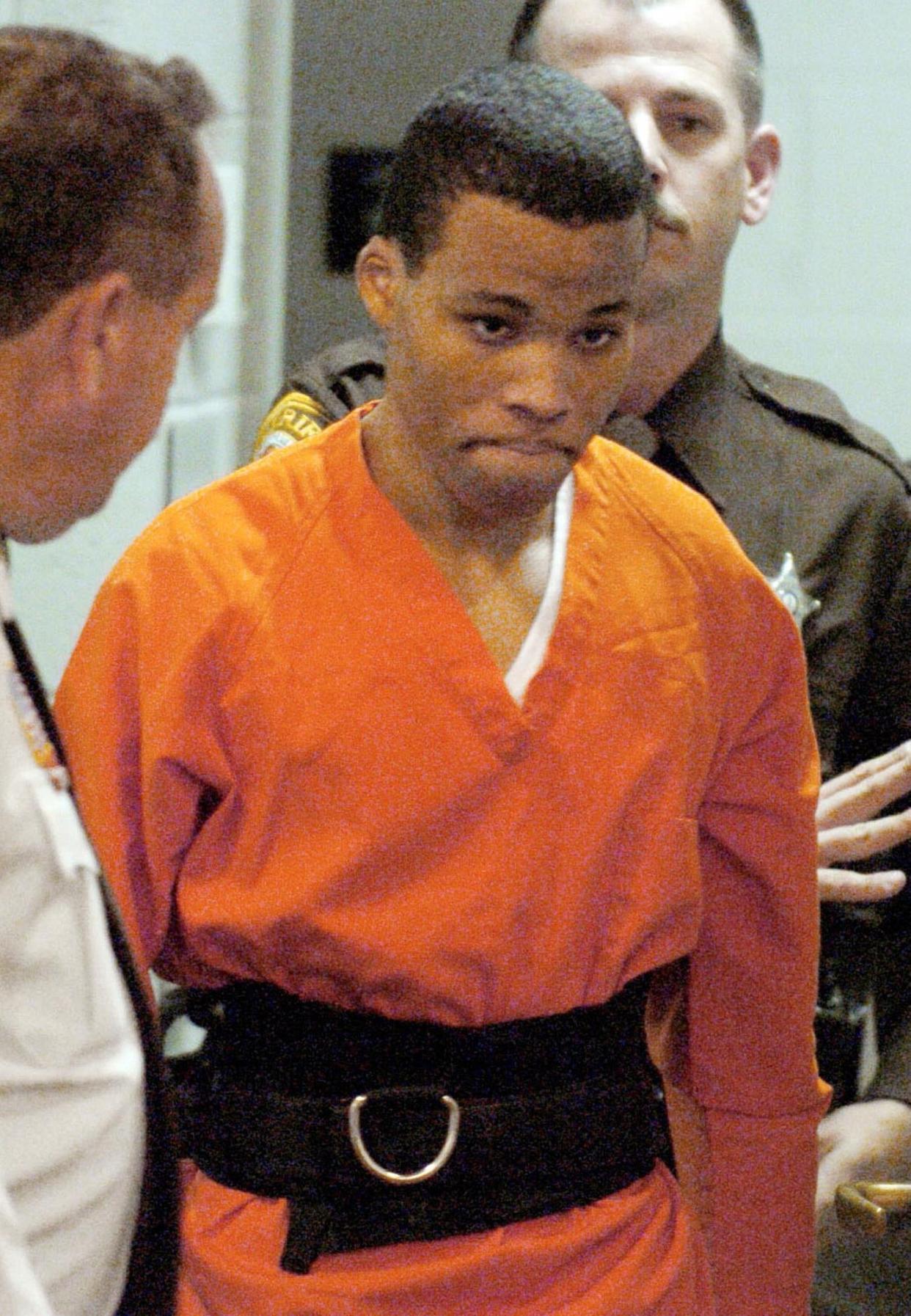Notorious sniper who terrorized the nation's capital region in 2002 divides Supreme Court 17 years later

WASHINGTON – Seventeen years ago, a 17-year-old boy helped to terrorize the nation's capital region with a series of random murders. On Wednesday, the Supreme Court seemed split on whether the now 34-year-old man may have his life-without-parole sentence reconsidered.
The case before the justices was that of Lee Boyd Malvo, the primary gunman in a three-week shooting spree in 2002 that killed 10 people in Virginia, Maryland and the District of Columbia. Malvo's partner in crime, John Allen Muhammad, was executed a decade ago, but Malvo received sentences of life without parole.
Since then, the Supreme Court has barred not only the death penalty for juvenile offenders but mandatory life-without-parole sentences for all but the most incorrigible. In 2016, it made the ruling on life sentences retroactive, forcing states to offer new hearings to more than 2,000 prisoners.
Virginia refused to reconsider Malvo's case, arguing that the high court's new rulings only apply to mandatory sentences. His attorneys claim those rulings require judges to decide if defendants are incorrigible or capable of reform, and that Virginia denied Malvo that opportunity.
If anything was clear from the one-hour oral argument Wednesday, it was that new Associate Justice Brett Kavanaugh likely holds the key vote.
On one side were conservatives such as Associate Justice Samuel Alito, who said the high court just requires that juveniles' sentences be discretionary, not mandatory. On the other were liberals such as Associate Justice Elena Kagan, who said minors sentenced to life in prison must be found to be "irretrievably corrupt."
Kavanaugh appeared stuck in the middle: agreeing that juveniles' disposition must be considered, but not convinced that judges with discretion must spell that out.
He questioned lawyers on both sides and received different answers. Danielle Spinelli, representing Malvo, said "this is not a case where the judge was required to consider anything."
Eric Feigin, assistant solicitor general for the Justice Department, which sided with Virginia, said the court's precedents do not set forth a "precise formula for taking age into account."
Two lower federal courts have agreed that Malvo should be resentenced because of the subsequent Supreme Court decisions. A panel of the U.S. Court of Appeals for the Fourth Circuit asked the trial court to decide if his crimes reflect "permanent incorrigibility" or "the transient immaturity of youth."
If the Supreme Court rules for Malvo, it could help some 60 juvenile offenders in six states, including about 12 in Virginia. But it would not represent a get-out-of-jail card for Malvo, who also received life without parole in Maryland for six murders committed there.
"It would mean that he would have the opportunity sometime in the future to make the case to a parole board that he has changed," Spinelli said. "So we are nowhere near any prospect of being released."
This article originally appeared on USA TODAY: Supreme Court divided over resentencing D.C.-Virginia-Maryland sniper

